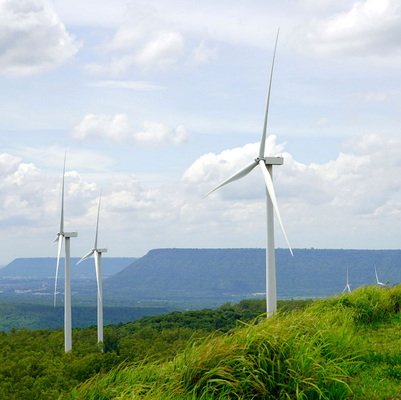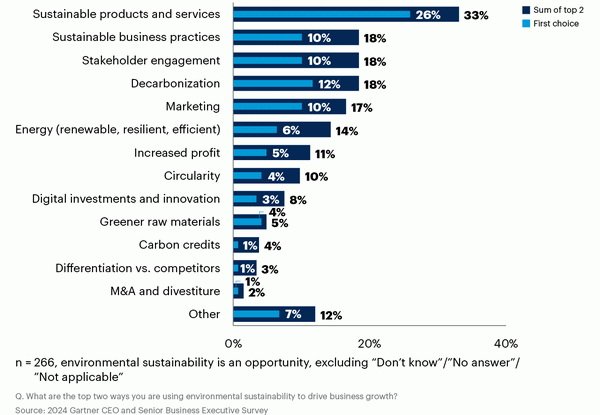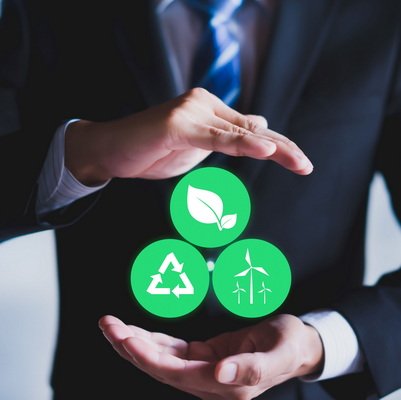การ์ทเนอร์เผยผลสำรวจซีอีโอและผู้บริหารระดับสูงล่าสุดพบว่าซีอีโอทั่วโลก 69% เห็นความยั่งยืนคือโอกาสการเติบโตทางธุรกิจที่สำคัญในปีนี้
คริสติน โมเยอร์ รองประธานฝ่ายนักวิเคราะห์ของการ์ทเนอร์กล่าวว่า “ในขณะที่ซีอีโอมีการปรับกลยุทธ์ระยะยาวกันใหม่ ความยั่งยืนด้านสิ่งแวดล้อมยังคงเป็นหนึ่งในปัจจัยสำคัญที่กำหนดกรอบการแข่งขัน สภาพเศรษฐกิจได้กระตุ้นให้เกิดกระแสการวกกลับของความสนใจเรื่องสิ่งแวดล้อม สังคมและธรรมาภิบาล (ESG) แม้ว่าจะมีการฟอกเขียว หรือ Greenwash ในองค์กรต่าง ๆ มากมาย และไปให้ความสำคัญกับผลกำไรจากต้นทุน อย่างไรก็ตามพันธกิจภาพรวมของซีอีโอยังไม่เปลี่ยนไปแต่อย่างใด”
จากการสำรวจซีอีโอและผู้บริหารระดับสูงของการ์ทเนอร์ในปี 2567 ระหว่างเดือนกรกฎาคมถึงธันวาคม ปี 2566 โดยรวบรวมความคิดเห็นของบรรดาซีอีโอและผู้บริหารระดับสูงในองค์กรธุรกิจต่าง ๆ ที่อยู่ในอุตสาหกรรมหลากหลาย ในกลุ่มรายได้และขนาดองค์กรแตกต่างกันออกไปมากกว่า 400 ราย จากทวีปอเมริกาเหนือ ยุโรป เอเชีย/แปซิฟิก ละตินอเมริกา ตะวันออกกลาง และแอฟริกาใต้

“ความยั่งยืนยังเป็นปัจจัยสำคัญของการทำธุรกิจที่อยู่ใน 10 อันดับแรกอย่างต่อเนื่อง โดยแซงหน้าเรื่องผลิตภาพ (Productivity) และประสิทธิภาพ (Efficiency) ขึ้นมาในปีนี้ ซึ่งผู้นำและนักลงทุนต่างทราบดีว่าองค์กรที่มีพฤติกรรมที่ไม่ใส่ใจต่อสิ่งแวดล้อมเป็นความเสี่ยงที่สร้างผลกระทบระยะกลางถึงระยะยาวต่อผลลัพธ์ทางธุรกิจ โดยมีราคาที่ต้องจ่ายมหาศาลหากละเลยปัจจัยในด้านสิ่งแวดล้อม อย่างไรก็ตามซีอีโอที่มีความเฉลียวฉลาดจะตระหนักดีว่าความท้าทายด้านความยั่งยืนครั้งใหญ่นี้จะสร้างโอกาสทางธุรกิจใหม่ ๆ เพิ่มขึ้นด้วย” โมเยอร์ กล่าวเพิ่มเติม
บรรลุการเติบโตทางธุรกิจอย่างยั่งยืน
จากการสำรวจประจำปีของการ์ทเนอร์ พบว่าแนวทางหลักที่ซีอีโอใช้ความยั่งยืนขับเคลื่อนการเติบโตทางธุรกิจ ได้แก่ การใช้ผลิตภัณฑ์และบริการที่ยั่งยืน (33%) ยึดแนวทางปฏิบัติทางธุรกิจที่ยั่งยืน (18%) สร้างการมีส่วนร่วมของผู้มีส่วนได้ส่วนเสีย (18%) และมุ่งลดการปล่อยคาร์บอน (18%) โดยการลงทุนด้านนวัตกรรมและดิจิทัลอยู่ในอันดับที่เก้าที่ 8% (ดูรูปที่ 1)

“เทคโนโลยีดิจิทัลสามารถเร่งการบรรลุเป้าหมายด้านความยั่งยืน นอกจากการปฏิบัติตามข้อกำหนดที่ช่วยให้องค์กรบรรลุเป้าหมายต่าง ๆ อย่างการเปิดรูปแบบธุรกิจใหม่ ๆ และการสร้างช่องทางรายได้ใหม่ ๆ” โมเยอร์กล่าวเพิ่มเติม
ตามรายงานของการ์ทเนอร์ยังเผยว่าเทคโนโลยีดิจิทัลนั้นมีบทบาทสำคัญต่อการขับเคลื่อนผลลัพธ์ด้านการเงินและความยั่งยืน ตัวอย่างเช่น Internet of Things (IoT), ข้อมูลและการวิเคราะห์ (Data & Analytics) ที่สามารถปรับใช้ได้อย่างเหมาะสม ช่วยลดต้นทุนและการปล่อยก๊าซเรือนกระจก โดยมี AI และ IoT คอยช่วยลดต้นทุนของอาหารและขยะที่สูญไป ขณะที่ตลาดในระบบเศรษฐกิจหมุนเวียน (Circular Economy) สามารถสร้างรายได้ใหม่และลดขยะไปพร้อม ๆ กัน
Climate Change คือ วาระสำคัญขับเคลื่อนการดำเนินธุรกิจ
ผลสำรวจของการ์ทเนอร์เผยว่าซีอีโอ 54% ระบุว่าธุรกิจของพวกเขาได้รับผลกระทบจากสภาพอากาศที่เปลี่ยนแปลงในระดับปานกลางเป็นอย่างต่ำ และมากกว่าครึ่งหนึ่ง (51%) ยอมรับว่าสภาพอากาศเปลี่ยนแปลงเป็นสาเหตุที่ทำให้พวกเขาต้องอยู่ในขั้นของการปรับเปลี่ยนแผนการดำเนินงานหรือปรับเปลี่ยนไปแล้ว
“ซีอีโอเห็นการเปลี่ยนแปลงสภาพภูมิอากาศกำลังทำให้สภาพอากาศแปรปรวนและกระทบตรง ๆ ต่อการดำเนินธุรกิจของพวกเขาแล้ว และการดำเนินงานจะต้องปรับเปลี่ยนใหม่ โดยนำเทคโนโลยีมาใช้ขับเคลื่อนการเปลี่ยนแปลง โดยเฉพาะอย่างยิ่งในห่วงโซ่อุปทาน” โมเยอร์กล่าวเพิ่มเติมว่า
ผลสำรวจของการ์ทเนอร์ เผยว่าผลกระทบใหญ่ที่สุดของการเปลี่ยนแปลงสภาพอากาศที่ซีอีโอกล่าวถึงคือ พลวัตการดำเนินงาน (30%) โดยเฉพาะการเปลี่ยนแปลงด้านโลจิสติกส์ เช่น การจัดเก็บสินค้า การกำหนดเวลา และกำหนดเส้นทางการจัดส่ง หรือการย้ายสถานที่ (ซึ่งรวมถึงการทำงานในพื้นที่ใกล้เคียง) อยู่ในอันดับสอง (14%) รองลงมาคือระบบอัตโนมัติ เทคโนโลยี และข้อมูล (13%)

Gartner Survey Reveals 69% of CEOs View Sustainability as a Growth Opportunity
Sixty-nine percent of CEOs view sustainability as a leading business growth opportunity in 2024, according to a recent survey of CEOs and senior executives by Gartner, Inc.
“As CEOs reset their long-term strategies, environmental sustainability remains one of the leading factors that will frame competition,” said Kristin Moyer, Distinguished VP Analyst at Gartner. “Despite much corporate greenwash, recent economic conditions could have triggered a reversion to environmental, social and governance (ESG) cynicism and a refocus on profit at all costs. However, the overall commitment of CEOs appears unwavering.”
The 2024 Gartner CEO and Senior Business Executive Survey was conducted from July to December 2023 among over 400 CEOs and other senior business executives in North America, Europe, Asia/Pacific, Latin America, the Middle East and South Africa, across different industries, revenue and company sizes.
“Sustainability consistently remains a top 10 business priority, surpassing even productivity and efficiency this year,” said Moyer. “Leaders and investors know environmentally cavalier corporate behavior is a mid- to long-term risk to business results, with a big price to be paid when environmental factors are ignored as externalities. However, smart CEOs realize big sustainability challenges create new areas of business opportunity.”
Achieving Sustainable Business Growth
According to Gartner’s annual survey, the leading ways CEOs are using sustainability to drive business growth are through sustainable products and services (33%); sustainable business practices (18%); stakeholder engagement (18%); and decarbonization (18%). Digital investments and innovation is ranked ninth at 8% (see Figure 1).
XXX
Source: Gartner (June 2024)
“Digital technology can accelerate progress toward sustainability goals, going beyond compliance to help enterprises reach targets, enable new business models and unleash revenue streams,” said Moyer.
According to Gartner, digital technology plays an important role in driving both financial and sustainability outcomes. For example, the Internet of Things (IoT), data and analytics can optimize wind turbines, which reduces costs and greenhouse gas emissions. AI and IoT can reduce food loss costs and waste; whereas a circular economy marketplace can create new revenue and reduce waste.
Climate Change Driving Agenda
The Gartner survey revealed 54% of CEOs say their businesses are affected by changing weather patterns, at least moderately. Over half (51%) acknowledge changing weather patterns are causing them to plan changes to the way they operate or have already done so.
“CEOs see that climate change is causing weather pattern shifts that are directly impacting their business operations already,” said Moyer. “Those operations must be adapted, with technology playing a vital role in driving these changes, especially in the dynamics of supply chains.”
The Gartner survey revealed the biggest impact of changing weather patterns cited by CEOs is operating dynamics (30%), particularly changes to logistics, such as warehousing, timing and routing of deliveries. Relocations (including nearshoring) comes in second (14%), followed by automation, technology and data (13%).





